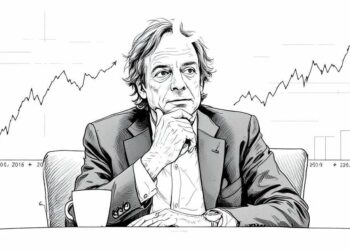- Peter Schiff critiques Bitcoin as a ‘fraud’ and questions Strategy’s future.
- Schiff targets Bitcoin’s “digital gold” narrative.
- His comments coincide with market volatility and ETF outflows.

Peter Schiff, CEO of Euro Pacific Asset Management, called Bitcoin a “fraud” on April 19, 2025, during an X Spaces podcast. Schiff, a long-time Bitcoin critic, also predicted that Strategy (formerly MicroStrategy) will face bankruptcy due to its significant Bitcoin investments.
Market reactions to Schiff’s statements reveal continued volatility and underline ongoing debates about Bitcoin’s role as a financial asset amidst global economic uncertainty.
Schiff’s long-standing criticisms suggest Bitcoin’s character as a speculative asset unlike gold. He described Bitcoin’s framing as “digital gold” as misleading. As he stated,
The idea that it’s digital gold has been destroyed because it trades nothing like gold. It’s just some kind of risk asset.
He challenged its utility by comparing it to tech stocks with potential revenue, questioning its purpose.
Schiff’s remarks closely followed the pattern of his earlier critiques, noting Strategy’s potential bankruptcy risks tied to its Bitcoin holdings. Michael Saylor, Strategy’s CEO, was mentioned as the largest Bitcoin corporate holder, but there was no direct response recorded from him during this period.
Bitcoin’s aftermath saw a trade at $78,669, down 30% from February’s peak. ETFs faced outflows totaling $871.6 million amid market selloffs early in April 2025, indicating broad market reactions aligned with wider economic conditions.
Financial trends highlighted Bitcoin’s volatility while gold hit new highs, supporting Schiff’s argument for gold’s safety over Bitcoin. Schiff’s assertions haven’t prompted regulatory action, but they influence investor sentiment as market observers noted ongoing scrutiny and ETF outflows.
Current analysis emphasizes potential impacts on global crypto perceptions and debates. Data and trends underscore Bitcoin’s resilience, yet expose its vulnerability to economic swings. Schiff’s critiques persist as Bitcoin’s identity debate continues, impacting market stability and investor choices.








